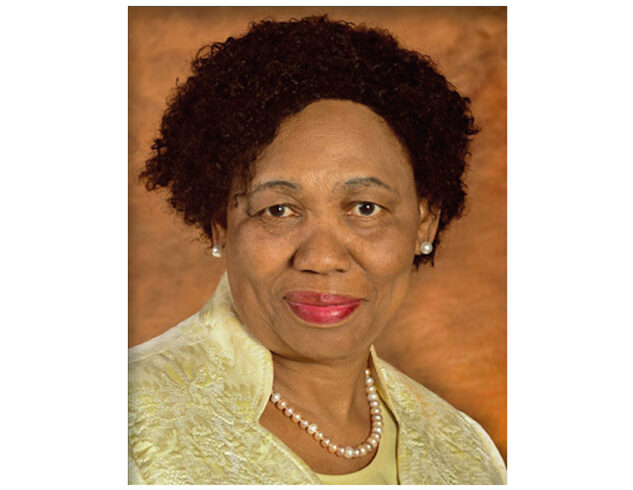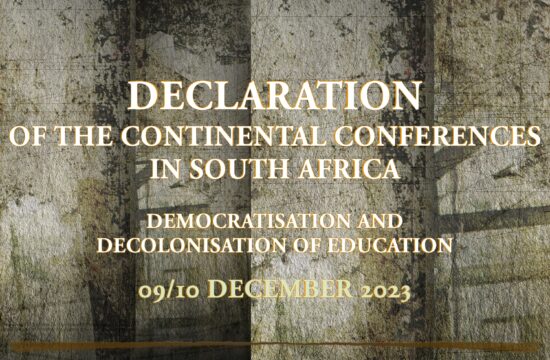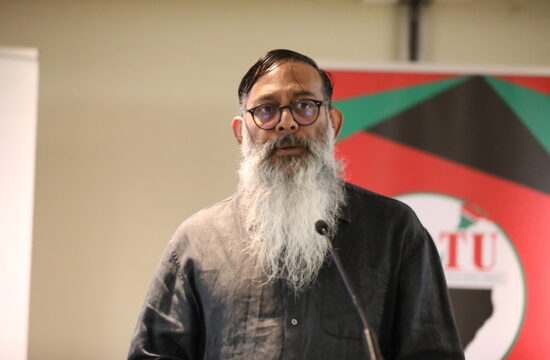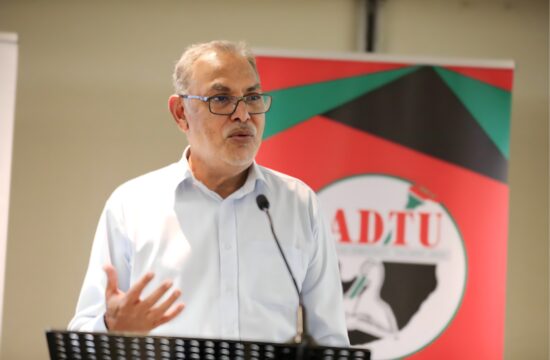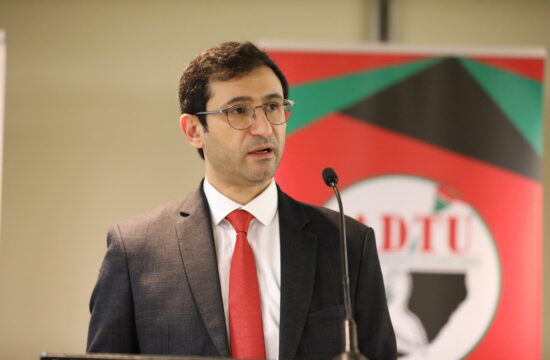Mrs Angie Motshekga, Minister of Basic Education, Republic South Africa
Ladies and Gentlemen,
Esteemed Delegates,
Honoured Guests,
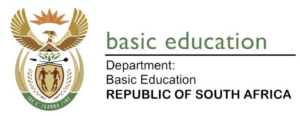 It is both a privilege and an honour for me, in my capacity as the Minister of Basic Education of the Republic of South Africa, to address this distinguished assembly at the Continental Conferences in Africa, focusing on the Democratisation and Decolonisation of Education.
It is both a privilege and an honour for me, in my capacity as the Minister of Basic Education of the Republic of South Africa, to address this distinguished assembly at the Continental Conferences in Africa, focusing on the Democratisation and Decolonisation of Education.
Today, as we gather here at the Southern Sun O.R. Tambo International Airport in Gauteng, we stand at a critical juncture in the history of African basic education.
Building upon the foundations established by two international symposia held in Germany in 2016 and 2018, this conference is part of the Project for the Expansion of the Right to Education (Project Article 26).
This conference marks a historic first – it’s the first time this event is held on African soil, focusing specifically on our continent’s unique challenges and opportunities.
We are here to build upon the foundations laid by Project Article 26, which ambitiously aims to expand the Right to Education as articulated in the Universal Declaration of Human Rights.
Article 26 of the Universal Declaration of Human Rights (UDHR) establishes that education should be free, at least at the elementary and fundamental stages.
It represents the first internationally agreed definition of the right to education.
Over time, this right has been described as a dual right, combining both fundamental freedoms and social and economic rights.
Our presence here signals a significant shift in the education discourse in Africa – a shift from passive acceptance to active engagement and from historical impositions to a future of self-determination in educational policies and practices.
As we converge here, the UNESCO Institute for Statistics (UIS) latest figures paint a grim picture. Of all regions, sub-Saharan Africa has the highest rates of education exclusion.
Over one-fifth of children between the ages of about 6 and 11 are out of school, followed by one-third of youth between the ages of about 12 and 14.
According to data from the Institute for Statistics, almost 60% of youth between the ages of 15 and 17 are not in school.
Without urgent action, the situation will likely worsen as the region faces a rising demand for education due to a still-growing school-age population.
Education in Africa is a major priority for UNESCO and its Institute for Statistics.
In response, the Institute for Statistics develops indicators to help governments, donors, and United Nations partners better address the challenges.
For example, the Institute for Statistics tracks the extent to which schools lack basic amenities, such as access to electricity and potable water, while monitoring classroom conditions – from the availability of textbooks to average class sizes and the prevalence of multi-grade classrooms.
In South Africa in 1996 (two after ushering in our democracy), the Schools Register of Needs study found fewer than half of the schools had adequate facilities.
However, the 2022 School Monitoring Survey shows substantial advancements: 87% now have proper toilets, 81% have access to running water, and 93% have electricity, indicating marked system improvements.
With seven out of ten countries facing an acute shortage of teachers, the Institute for Statistics also produces a range of data on their training, recruitment and working conditions.
Ladies and gentlemen, girls’ education is a significant priority. Across the region, 9 million girls between the ages of about 6 and 11 will never go to school at all, compared to 6 million boys, according to Institute for Statistics data.
Sadly, their (girls) disadvantage starts early: 23% of girls are out of primary school compared to 19% of boys. By the time they become adolescents, the exclusion rate for girls is 36% compared to 32% for boys.
At home, the situation has somewhat improved in the last fifteen years since the world, including Africa, helped us to defeat the apartheid regime in 1994.
According to Statistics South Africa’s latest survey, basic education access for seven-to-15-year-olds has improved significantly and is now nearly universal.
Early childhood development (ECD) opportunities have also increased: fewer than 40% of five-year-olds attended educational institutions in 2002, compared to almost 90% recently.
One must admit that we have moved at a snail’s pace to reach where we are. Fewer than one in 20 black South Africans born in the 1940s completed 12 years of education. By 1960, this was about one in 10. For those born in the 1980s and finishing school in the late 1990s, it was about three in 10. According to household survey data from 2021, the figure is now nearly six in 10.
Despite the disheartening statistics, the United Nations Children’s Fund (UNICEF) acknowledges the progress achieved in Africa’s educational sector over the past decade.
Moreover, UNICEF’s report, “Transforming Education in Africa,” proposes recommendations for fostering a more equitable education system that aligns with the demands of the modern era.
Significantly, by 2050, it is projected that half of the African population will be under 25 years of age, presenting a substantial opportunity for growth and advancement contingent on enhancing educational opportunities.
We recognise that education in Africa cannot be dissociated from its history – a history deeply scarred by colonialism and its lasting impacts.
Yet, this history is also marked by resilience, resistance, and a relentless pursuit of autonomy and identity.
Our endeavour here is not just about expanding access to education but redefining what education means in Africa.
It is about ensuring that our educational systems reflect our values, histories, and aspirations.
The critical evaluation of current global education policies and their impact on Africa remains a priority.
We are tasked with the responsibility of not only questioning these policies but also offering tangible, culturally resonant, and sustainable alternatives.
Our discussions should aim to disentangle our educational systems from neo-colonial narratives and to embed them deeply within the rich tapestry of African sociocultural contexts.
As the former vice-chancellor of the University of Cape Town, Professor Mamokgethi Phakeng, put it: “We cannot be content with simply consuming and critiquing the educational models imposed upon us. We must be the architects of our own educational destinies, drawing upon the deep well of knowledge and wisdom embedded within our own cultures and traditions.”
Professor Phakeng argues, “It is only by reclaiming the narrative of education in Africa that we can truly empower our children to thrive in the 21st century.” (Phakeng, M. (2019). Epistemologies of the Global South: Towards an African Renaissance. Cape Town: HSRC Press.)
Professor Phakeng argues, “It is only by reclaiming the narrative of education in Africa that we can truly empower our children to thrive in the 21st century.” (Phakeng, M. (2019). Epistemologies of the Global South: Towards an African Renaissance. Cape Town: HSRC Press.)
Ladies and gentlemen, our symposium also addresses the necessity of reforming the United Nations (UN) to better reflect the multipolarity of the current global landscape. This is particularly pertinent for Africa, a continent often side-lined in international decision-making processes.
Ladies and gentlemen, our symposium also addresses the necessity of reforming the United Nations (UN) to better reflect the multipolarity of the current global landscape. This is particularly pertinent for Africa, a continent often side-lined in international decision-making processes.
As we commemorate the 75th anniversary of the Universal Declaration of Human Rights, we must reflect on the erosion of international law and its implications for human rights, including the right to education. The challenge is ensuring that the principles enshrined in the Universal Declaration of Human Rights are not just lofty ideals but lived realities for every African child.
As we sit here, who will speak for the plight of Palestinian school-going children trapped under the rubble in Gaza, for those helplessly fighting famine and diarrhoea in South Sudan, and for those using schools not as centres of education and knowledge but as shelters in Ethiopia?
As we sit here, who will speak for the plight of Palestinian school-going children trapped under the rubble in Gaza, for those helplessly fighting famine and diarrhoea in South Sudan, and for those using schools not as centres of education and knowledge but as shelters in Ethiopia?
As we sit here, who will speak for the plight of Palestinian school-going children trapped under the rubble in Gaza, for those helplessly fighting famine and diarrhoea in South Sudan, and for those using schools not as centres of education and knowledge but as shelters in Ethiopia?
These children, robbed of their childhoods and burdened by the weight of war, carry the heavy responsibility of rebuilding their lives and their nations, a daunting task in the face of such immense loss and uncertainty.
Yet, within their eyes, a flicker of hope remains, a testament to the resilience of the human spirit and a plea for a world where the innocence of children is no longer sacrificed on the altar of war.
Yet, within their eyes, a flicker of hope remains, a testament to the resilience of the human spirit and a plea for a world where the innocence of children is no longer sacrificed on the altar of war.
In a world beset by wars, pandemics, and economic crises, it is more crucial than ever to address the educational needs of the most vulnerable.
Therefore, this conference’s objectives must extend beyond the halls of this symposium. The discussions held here, the perspectives shared, and the policies proposed will be collated and published, contributing to an interim report to be submitted to the UN Secretary-General.
This report will not only reflect our collective wisdom but also lay the groundwork for a transformative educational agenda for Africa.
However, it will remain a minefield to solve the nagging education problems in a world beset by wars and a United Nations controlled by superpowers.
However, it will remain a minefield to solve the nagging education problems in a world beset by wars and a United Nations controlled by superpowers.
The speakers over these two days, hailing from diverse backgrounds and representing various African nations, bring with them a wealth of knowledge and experience. Their insights will be invaluable as we navigate the complexities of democratising and decolonising education in Africa.
As we embark on this momentous journey, let us be guided by a spirit of collaboration, a commitment to inclusivity, and a resolve to forge an educational future for Africa, by Africa.
Our task is monumental, but the collective will and expertise gathered here give me confidence that we are up to the challenge.
Our task is monumental, but the collective will and expertise gathered here give me confidence that we are up to the challenge.
Yes, it must be like “letting a hundred flowers blossom and a hundred schools of thought contend,” as famously said by the leader of the Chinese Communist Party, Mao Zedong, in 1956.
Thank you for your attention, and I look forward to the fruitful deliberations and outcomes of this seminal conference.
* This article is published simultaneously in PoliTeknik Turkish edition,
PoliTeknik International and PoliTeknik Español.

